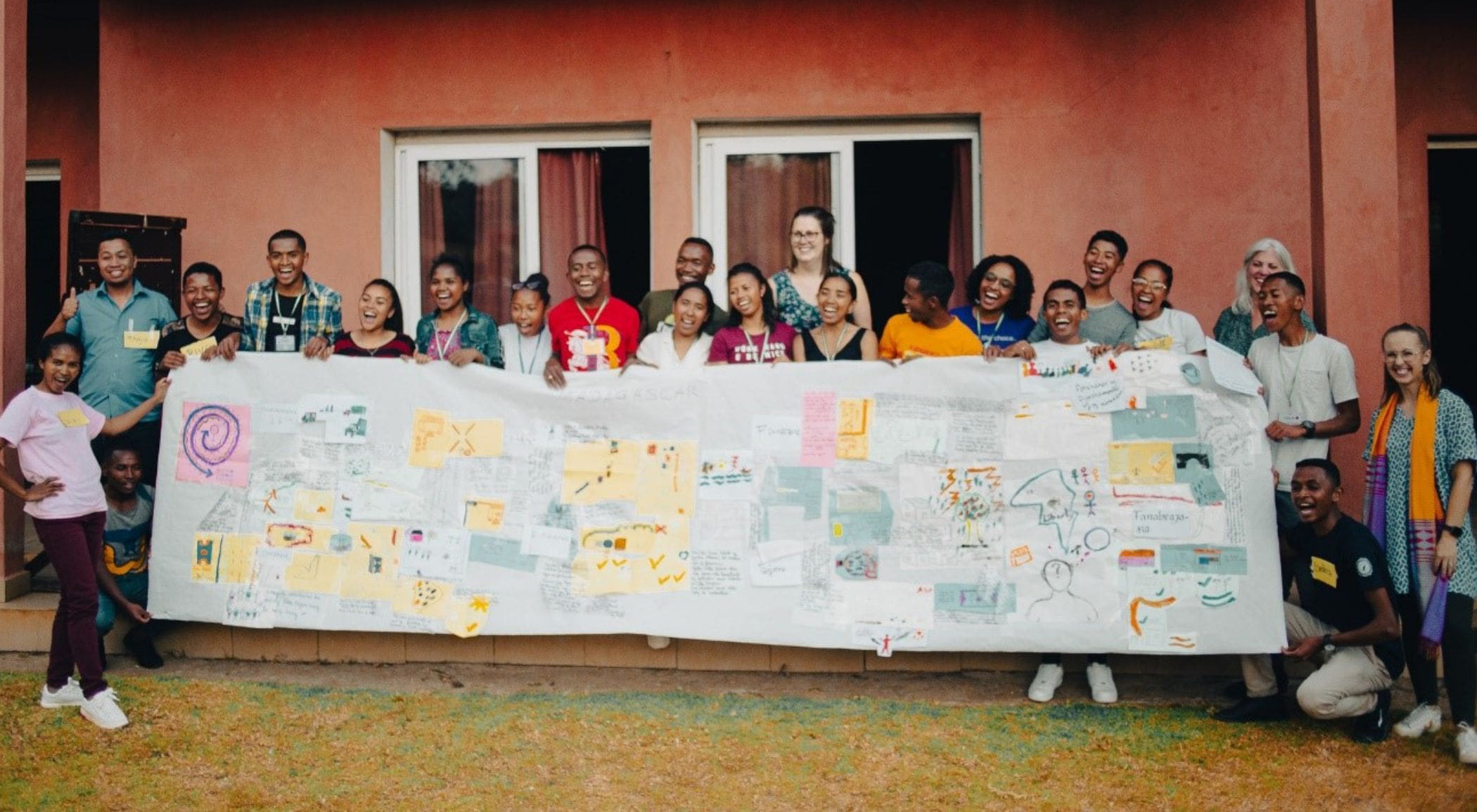Faculty Spotlights >> Sara Baumann: Researcher, Scientist, Filmmaker
Filmmaking as a Transformative Research Paradigm

Public Health
In some parts of the world, social norms, cultural traditions and religious practices jeopardize the physical and mental health of menstruating girls, women and people who menstruate.
For the past 15 years, Sara Baumann, assistant professor, behavioral and community health sciences, School of Public Health, has been using filmmaking as a key component of her global health research and advocacy. One of her early films, which has over 88,000 views on YouTube, is a documentary investigating menstrual experiences among girls in rural Bangladesh. The film started Baumann on a creative research journey that she is still on today, focused on investigating menstruation around the world. After spending several years running her own film company in South Asia, Old Fan Films, she came to Pitt Public Health to build her expertise in harnessing film specifically for research.
As a part of her PhD dissertation completed at the Pitt School of Public Health, Baumann created an innovative visual research method called Collaborative Filmmaking to partner with communities through the filmmaking process to tell their own stories. In Nepal, for example, Baumann uses Collaborative Filmmaking to study the practice of chhaupadi, or menstrual seclusion.

Learn about Visual Voices, another arts-based participatory research method that has been used to explore empowerment among adolescents in Madagascar.
“The films contain rich data that allow us to uncover deeper insights and create new research projects that can directly improve the lives of menstruators in Nepal.”
Baumann and her team have trained over 20 women and girl participants in rural Nepal to create their own films of their menstrual traditions. They record ways in which their lives are impacted every month and have written and recorded their own songs about their experiences.
Some must live outside their homes in makeshift sheds or animal huts and walk to a nearby river to bathe; others may not enter their place of worship or touch their grandparents because they are considered “impure” during this time of the month. They are at risk of physical harm from poisonous snake bites, unsanitary conditions and hypothermia from sleeping outside, and many experience mental harms from anxiety and fear the risk of rape.
Although chhaupadi has been criminalized in Nepal since 2017, it is still widely practiced, particularly in remote areas in mid- and far-west Nepal. Many residents in these areas are not aware of the legal penalties associated with it. Currently funded by a National Institutes of Health career development award from the Fogarty International Center, Baumann’s rich body of research on menstruation in Nepal also examines how participants and their families perceive criminalization of their tradition, and their ideas for behavioral and social change surrounding the practice.
“The films contain rich data that allow us to uncover deeper insights and create new research projects that can directly improve the lives of menstruators in Nepal,” explains Baumann.
She embraces the participatory nature during every step of the Collaborative Filmmaking process. The films created by participants are screened and analyzed by the participants themselves, then viewed by members of the community, including family and health care providers. “Each film is unpacked and discussed on several levels,” explains Baumann. “Even though individuals and members of the community may desire to shift the practice of chhaupadi, behavioral change takes time. We have seen in our projects that open dialogue and exchange between diverse community members can help. Overall, our goal is to build creative capacity within local communities, measure behavior change and promote agency among women and girls.”
Baumann credits language training for the ability to build rapport with non-English-speaking participants in rural areas. She also believes that the arts are a universal language that connect people around the globe. “The arts—such as filmmaking—offer a powerful way to share lived experiences and reveal deeply personal perspectives, providing insights that have proven invaluable in scientific research.” Baumann has gone on to use Collaborative Filmmaking to work with numerous partners in six countries to study stigmatized and sensitive health topics, from mental health to palliative care, to postpartum mental health. The method has proved valuable to illuminate complex human experiences.
